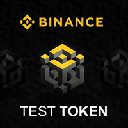-
 Bitcoin
Bitcoin $96,643.6553
0.91% -
 Ethereum
Ethereum $2,768.6102
4.64% -
 XRP
XRP $2.5850
0.85% -
 Tether USDt
Tether USDt $1.0001
0.07% -
 BNB
BNB $670.3467
3.98% -
 Solana
Solana $172.9712
2.98% -
 USDC
USDC $1.0001
0.00% -
 Dogecoin
Dogecoin $0.2468
3.37% -
 Cardano
Cardano $0.7757
1.84% -
 TRON
TRON $0.2361
-0.22% -
 Chainlink
Chainlink $17.8128
2.53% -
 Avalanche
Avalanche $25.8697
5.32% -
 Sui
Sui $3.4065
4.26% -
 Stellar
Stellar $0.3341
2.62% -
 Litecoin
Litecoin $126.8494
-0.36% -
 Toncoin
Toncoin $3.7288
4.54% -
 Shiba Inu
Shiba Inu $0.0...01567
4.17% -
 Hedera
Hedera $0.2165
2.14% -
 UNUS SED LEO
UNUS SED LEO $9.7185
-0.31% -
 Hyperliquid
Hyperliquid $24.7882
-0.62% -
 Polkadot
Polkadot $5.0655
-0.52% -
 MANTRA
MANTRA $7.5435
-0.43% -
 Bitcoin Cash
Bitcoin Cash $322.0500
2.62% -
 Bitget Token
Bitget Token $4.9553
4.83% -
 Ethena USDe
Ethena USDe $0.9995
0.16% -
 Uniswap
Uniswap $9.0787
4.29% -
 Dai
Dai $1.0001
0.02% -
 Monero
Monero $231.8651
1.42% -
 NEAR Protocol
NEAR Protocol $3.4975
5.97% -
 Pepe
Pepe $0.0...09670
5.31%
What is Ethereum's DeFi?
Ethereum's DeFi offers accessibility, transparency, efficiency, and low fees in a rapidly growing ecosystem that empowers users to engage in financial services without the need for intermediaries.
Feb 18, 2025 at 04:24 pm

Key Points:
- Definition and Overview of Ethereum's DeFi
- Key Benefits of Ethereum's DeFi
- Major Protocols and Platforms in Ethereum's DeFi
- Steps to Participate in Ethereum's DeFi
- Potential Risks and Considerations of Ethereum's DeFi
What is Ethereum's DeFi?
Ethereum's DeFi, short for "decentralized finance," is a rapidly growing ecosystem of financial services and products that are built on the Ethereum blockchain network. DeFi applications leverage blockchain technology to provide access to financial services without the need for intermediaries, such as banks or brokerage firms. This allows users to engage in various financial activities, including lending, borrowing, trading, and more, in a trustless and transparent manner.
Key Benefits of Ethereum's DeFi:
- Accessibility: DeFi platforms are accessible to anyone with an internet connection and an Ethereum wallet, providing financial services to underbanked or underserved populations.
- Transparency: All transactions and operations within DeFi protocols are recorded on the Ethereum blockchain, ensuring complete transparency and traceability.
- Efficiency: DeFi applications automate many financial processes, eliminating the need for manual processing and intermediaries, which leads to faster and more efficient transactions.
- Low Fees: DeFi platforms typically charge lower transaction fees compared to traditional financial institutions, as they eliminate the middlemen and overhead costs associated with centralized systems.
Major Protocols and Platforms in Ethereum's DeFi:
The Ethereum DeFi ecosystem consists of a wide range of protocols and platforms that facilitate various financial services:
- Decentralized Lending and Borrowing: Protocols like Aave and Compound allow users to lend their crypto assets to earn interest or borrow funds without credit checks or collateral.
- Decentralized Exchanges (DEXs): DEXs such as Uniswap and SushiSwap enable users to trade crypto assets directly with each other on a peer-to-peer basis, eliminating the need for centralized exchanges.
- Stablecoins: Stablecoins, like Tether (USDT) and Dai (DAI), provide users with crypto assets that are pegged to the value of fiat currencies, allowing for stable value transactions in the DeFi space.
- Yield Farming: Yield farming protocols, like Yearn Finance and Curve Finance, allow users to maximize returns by automatically moving their assets between different DeFi protocols to earn the highest interest rates.
- Oracles: Oracles, like Chainlink and Band Protocol, provide DeFi protocols with access to real-world data, enabling them to function securely and accurately.
Steps to Participate in Ethereum's DeFi:
- Set up an Ethereum Wallet: Create an Ethereum wallet, such as MetaMask or Coinbase Wallet, to store your crypto assets and interact with DeFi protocols.
- Fund Your Wallet: Transfer Ethereum (ETH) or other supported crypto assets to your Ethereum wallet.
- Connect to DeFi Protocols: Visit the official websites of DeFi protocols or use aggregators like 1inch or Zerion to connect your Ethereum wallet to the desired protocol.
- Explore Protocol Features: Once connected, you can explore the various financial services and products offered by the DeFi protocol.
- Conduct Transactions: Review the terms and conditions, provide authorization, and confirm the execution of your transactions within the DeFi protocol.
Potential Risks and Considerations of Ethereum's DeFi:
- Volatility: Crypto asset prices are known for their volatility, which can lead to potential losses in DeFi activities such as lending or yield farming.
- Smart Contract Risks: DeFi protocols rely on smart contracts, which can be vulnerable to vulnerabilities or exploits, potentially leading to loss of funds.
- Governance Risks: DeFi protocols are often managed by decentralized autonomous organizations (DAOs), which may lack regulatory oversight or clear decision-making processes.
- Security Risks: DeFi wallets and protocols can be targets of cyberattacks or hacks, potentially compromising users' assets and information.
- Financial Regulation: The regulatory landscape for DeFi is still evolving, and regulatory uncertainty can impact the legitimacy and accessibility of DeFi platforms.
FAQs Related to Ethereum's DeFi:
- Is Ethereum's DeFi safe? The security of Ethereum's DeFi depends on factors such as smart contract design, protocol audits, and user due diligence. It is important to exercise caution and research protocols before participating in DeFi activities.
- What is yield farming? Yield farming involves actively moving assets between DeFi protocols to maximize interest returns. It can be complex and carries potential risks.
- How do I choose the right DeFi protocol? Consider factors such as the protocol's reputation, audit status, and community support when choosing a DeFi protocol.
Disclaimer:info@kdj.com
The information provided is not trading advice. kdj.com does not assume any responsibility for any investments made based on the information provided in this article. Cryptocurrencies are highly volatile and it is highly recommended that you invest with caution after thorough research!
If you believe that the content used on this website infringes your copyright, please contact us immediately (info@kdj.com) and we will delete it promptly.
- Here’s Why XRP Price Could Hit $6 Soon
- 2025-02-23 06:55:25
- ETH Price Prediction 2025 - Will ETH Drop by -15.90% to $2,302.40 by Feb 26, 2025?
- 2025-02-23 06:55:25
- Shiba Inu Price Prediction: SHIB's Potential Value If It Matches XRP, BNB, or Solana's Market Cap
- 2025-02-23 06:55:25
- Bitcoin Is the Ultimate Store of Value in an Era of Increasing Instability
- 2025-02-23 06:55:25
- DTX Exchange: Why Analysts Are Betting Big on the Presale
- 2025-02-23 06:45:26
- Top 5 Meme Coins to Buy Now: Arctic Pablo Coin (APC) Leads the Rally
- 2025-02-23 06:45:26
Related knowledge
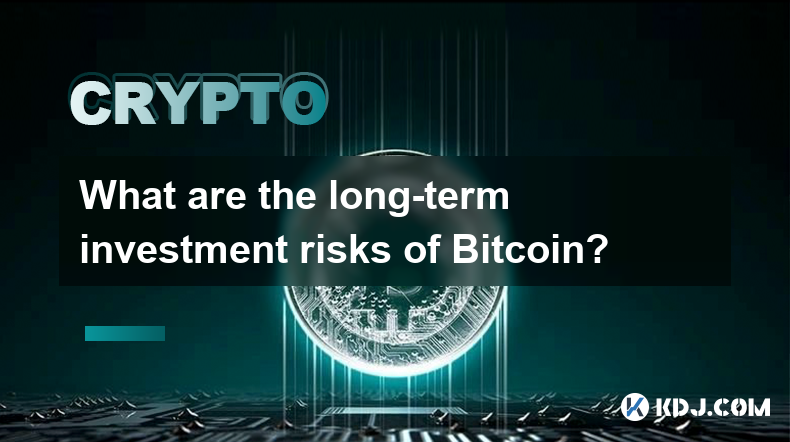
What are the long-term investment risks of Bitcoin?
Feb 22,2025 at 05:30pm
Key PointsVolatility and price fluctuationsRegulatory uncertaintySecurity risksCompetition from altcoinsMarket manipulation and scamsTransaction feesEnvironmental concernsLong-Term Investment Risks of BitcoinVolatility and Price FluctuationsBitcoin's high volatility is a double-edged sword. While it has the potential to generate substantial returns, it ...
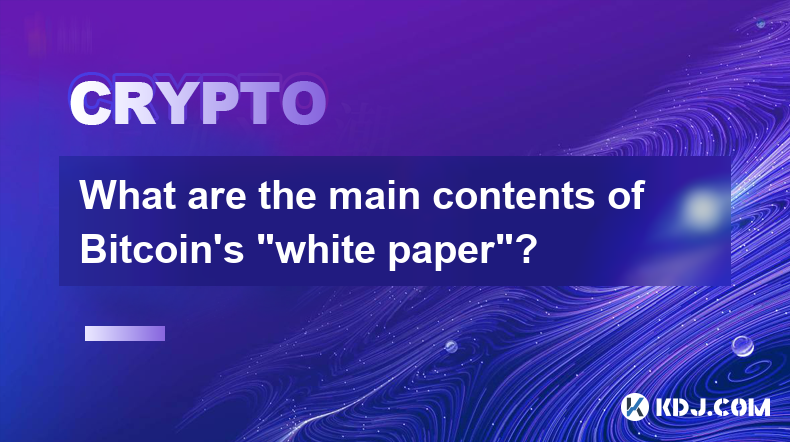
What are the main contents of Bitcoin's "white paper"?
Feb 21,2025 at 04:36am
Key Points:Understanding Bitcoin's Genesis: The White Paper's IntroductionA Decentralized Digital Currency: Bitcoin's Core ConceptBlockchain Technology: The Foundation of Bitcoin's Immutable LedgerProof-of-Work: Securing Bitcoin's NetworkThe Design of Bitcoin's Currency: Issuance, Scarcity, and DivisibilityBitcoin's Potential Applications and Future Pro...

How does Bitcoin's distributed ledger ensure consistency?
Feb 22,2025 at 10:06pm
Key Points:Bitcoin employs a distributed ledger, also known as a blockchain, to maintain a tamper-proof and consistent record of transactions.The blockchain is a decentralized network of computers that collectively validate and store transaction data.Bitcoin's distributed ledger ensures consistency through consensus mechanisms and cryptographic algorith...
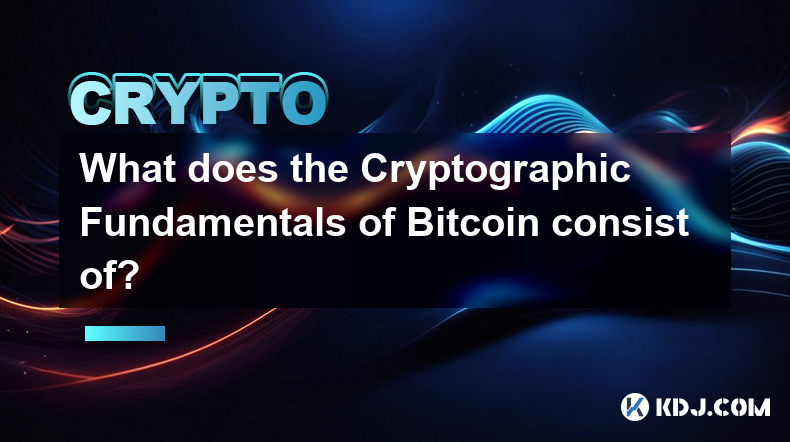
What does the Cryptographic Fundamentals of Bitcoin consist of?
Feb 21,2025 at 12:06pm
Key PointsUnderstanding the cryptographic algorithms used in BitcoinFamiliarization with the Bitcoin blockchain and its underlying mechanicsExamination of the security measures that protect Bitcoin from attackAnalysis of the decentralized nature of Bitcoin and its implicationsDiscussion of the scalability and transaction fee issues associated with Bitco...
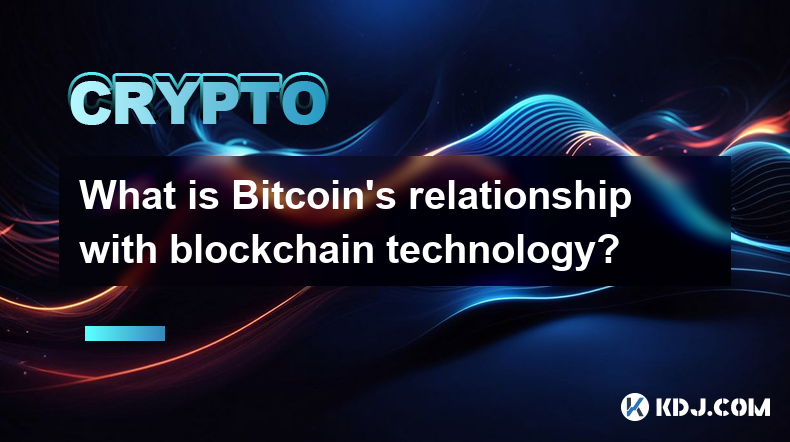
What is Bitcoin's relationship with blockchain technology?
Feb 22,2025 at 07:00pm
Bitcoin's Intertwined Relationship with Blockchain TechnologyKey Points:Definition of blockchain technology and its decentralized natureBitcoin's utilization of blockchain for secure and immutable transactionsThe role of blockchain in verifying and confirming transactionsEvolution of blockchain technology beyond Bitcoin's cryptocurrency applicationsUnde...
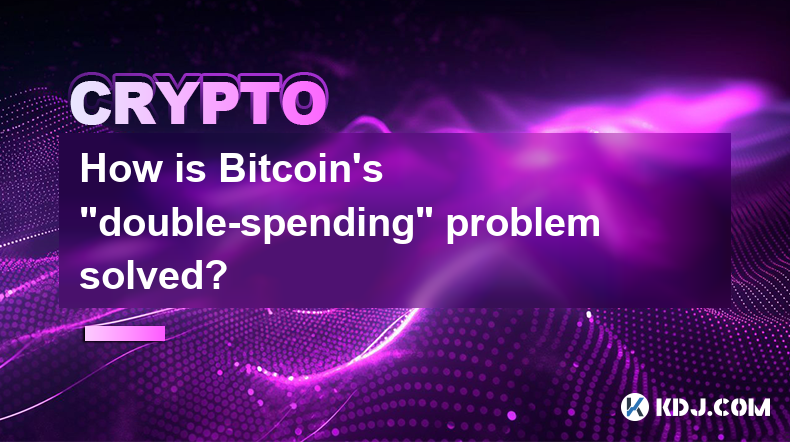
How is Bitcoin's "double-spending" problem solved?
Feb 23,2025 at 02:54am
Key Points:The double-spending problem refers to the potential for a digital currency transaction to be reversed, allowing the same funds to be spent multiple times.Bitcoin solves this problem through the use of a decentralized blockchain, a public ledger that records all transactions permanently and securely.The immutability and transparency of the blo...

What are the long-term investment risks of Bitcoin?
Feb 22,2025 at 05:30pm
Key PointsVolatility and price fluctuationsRegulatory uncertaintySecurity risksCompetition from altcoinsMarket manipulation and scamsTransaction feesEnvironmental concernsLong-Term Investment Risks of BitcoinVolatility and Price FluctuationsBitcoin's high volatility is a double-edged sword. While it has the potential to generate substantial returns, it ...

What are the main contents of Bitcoin's "white paper"?
Feb 21,2025 at 04:36am
Key Points:Understanding Bitcoin's Genesis: The White Paper's IntroductionA Decentralized Digital Currency: Bitcoin's Core ConceptBlockchain Technology: The Foundation of Bitcoin's Immutable LedgerProof-of-Work: Securing Bitcoin's NetworkThe Design of Bitcoin's Currency: Issuance, Scarcity, and DivisibilityBitcoin's Potential Applications and Future Pro...

How does Bitcoin's distributed ledger ensure consistency?
Feb 22,2025 at 10:06pm
Key Points:Bitcoin employs a distributed ledger, also known as a blockchain, to maintain a tamper-proof and consistent record of transactions.The blockchain is a decentralized network of computers that collectively validate and store transaction data.Bitcoin's distributed ledger ensures consistency through consensus mechanisms and cryptographic algorith...

What does the Cryptographic Fundamentals of Bitcoin consist of?
Feb 21,2025 at 12:06pm
Key PointsUnderstanding the cryptographic algorithms used in BitcoinFamiliarization with the Bitcoin blockchain and its underlying mechanicsExamination of the security measures that protect Bitcoin from attackAnalysis of the decentralized nature of Bitcoin and its implicationsDiscussion of the scalability and transaction fee issues associated with Bitco...

What is Bitcoin's relationship with blockchain technology?
Feb 22,2025 at 07:00pm
Bitcoin's Intertwined Relationship with Blockchain TechnologyKey Points:Definition of blockchain technology and its decentralized natureBitcoin's utilization of blockchain for secure and immutable transactionsThe role of blockchain in verifying and confirming transactionsEvolution of blockchain technology beyond Bitcoin's cryptocurrency applicationsUnde...

How is Bitcoin's "double-spending" problem solved?
Feb 23,2025 at 02:54am
Key Points:The double-spending problem refers to the potential for a digital currency transaction to be reversed, allowing the same funds to be spent multiple times.Bitcoin solves this problem through the use of a decentralized blockchain, a public ledger that records all transactions permanently and securely.The immutability and transparency of the blo...
See all articles














































































